It's upgrade season: How I find the best smartphones for me (or anyone else buying one)
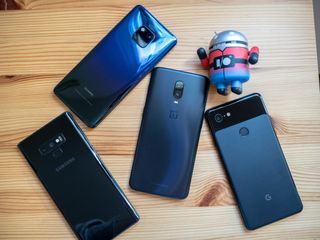
It's spring! While we're gearing up to enjoy the coming warmth, sunshine, and fresh flowers, many smartphone makers are preparing the new wonderful devices they want you to spend your money on.
I like to call it upgrade season. There are two of those, actually, with the other coming right around autumn when the inventory-clearing holiday sales urge more people to spend money.
It's not enough to simply walk into a store anymore.
Carriers and retailers will shove shiny new devices onto their store shelves, and when your current smartphone starts falling apart, that's probably the first place you'll go. And while there are many employees of those companies capable of steering you where you need to go, I've heard all too frequently from folks who are tired of getting bad advice at the point of sale, and that's usually when I'm called in to help.
You see, those employees mean well in doing their job. Their job is to sell whatever it is the retailers and carriers want to sell you, and to do it as quickly as you can. This can lead to a lot of deception, lying, or just misinformation because they simply don't know enough, all for the purpose of getting you to checkout.
Some stores don't even allow employees to engage in lengthy shopping conversations. Instead, they train them on which specific devices and services to pitch in several scenarios, usually bracketed by price, by category, or special cases due to some sort of promotion.

This fast-paced and simplified approach to retail has pros and cons on both sides of the court, but the main thing to know is that you aren't doing enough by just walking into a store anymore. Whether you're buying for yourself or helping someone else, you need to do tons of research, and maybe even a little bit of soul-searching. Here's how I set out to find the perfect smartphone to buy.
Start with the budget
I always approach people with one simple question when they ask me about buying a new smartphone or new tech in general: "What's the budget?"
Be an expert in 5 minutes
Get the latest news from Android Central, your trusted companion in the world of Android
It's a really simple question, but it's also the most important one. A lot of people don't actually think about how much they want to spend the moment they decide to upgrade. They usually come back quick with a figure that's very attractive to their wallets, but not always matching the quality of the product they're likely hoping to get.
But we don't know their full needs yet. We just want to get the figure, because that impacts everything else.
Get to know them

It's not wise to simply suggest the highest rated phone they can afford. This is where I like to learn more about their needs and their desires instead.
For instance, a friend who I helped buy a smartphone recently told me that he absolutely had to have a big screen and a fingerprint scanner. He wants to play Pokémon GO and other demanding mobile games. He also regularly uses the phone for video calls.
I could find dozens of smartphones that do all those things to some usable degree, so I find I often have to do a bit more digging to see how they really use the phone. Some people use it far more heavily than they realize, and then express concerns when the phone can't keep up.
You also have to know their circumstances and any rigid points that they absolutely can't help. Many people present a strict carrier preference or have cursed the name of certain brands. Some will only buy from one specific brand. Figure out where you can and can't go in this quest and you'll have a much easier time.
Do some educating

It's time to play teacher. Perhaps it's because I do it for a living, but I really enjoy explaining things to people and helping them understand new concepts, probably because I'm so eager to learn when I'm in a similar position.
Your job now is to take everything your friend has told you and use it to inform them of some truths. Start presenting the options and talk to them about the importance of all the elements that work together to enable everything they want to do.
For my friend's case, the need for a big display is no issue because it's pretty hard to find "small" phones these days. He wants to play games, but though there are some smartphones under $200 that will run Pokémon GO and PUBG Mobile, they won't really run them to their full potential.
I had to sell him on the virtues of beefier internals. I explained to him why he should go with something that has USB-C over Micro-USB. I talked to him about network compatibility issues and why you shouldn't just buy any smartphone you see on Amazon. He learned why it was better to have an ample amount of internal storage over skimping and using a microSD card in its stead.
By the end of it, my friend had a pretty good understanding of not just what he wanted, but what he needed. That's when I was forced to bring him back down to earth, much as it pained me.
Narrow the choices down
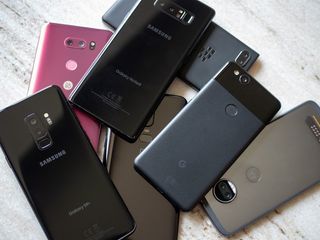
After our day of perusing the modern smartphone selections, I had the tough task to unceremoniously chop roughly 90% of the smartphones from his list. This part isn't necessarily hard because your friend should already know what kind of phone they can get for the kind of money they want to spend, but it's still tough because you spent an entire day talking about all the amazing things smartphones are capable of and getting them excited about it.
In my experience, they're often not happy about that because they feel they wasted a lot of time, but we know that isn't the case. We spent all that time to help them make a more informed decision.
I know I felt really bad a few years ago when this same friend — who was dead set on spending no more than $100 for a smartphone — ended up hating the ZTE ZMax Pro. We see now that was probably a good thing.
I recommended it because he told me on half a dozen different occasions that he could spend no more than $100 and that he was only willing to buy through his carrier (MetroPCS) and that was the only option. In my eyes, there was no need for that conversation to go any further, so I peddled what I believed to be a pretty decent device for the price tag at the time.
People don't know what they don't know. You have to tell them.
But by going through that experience, it helped him see that what he wanted wasn't really realistic. Games were chugging along and Android didn't perform as smoothly as he liked. The 2GB of RAM inside whimpered at his overzealousness. The Snapdragon 617 was a well-balanced chipset, but ZTE clearly didn't spend much time optimizing for it.
In the end, I learned that it wasn't that he couldn't go more than $100, it was just that he didn't want to. This is when we go back to the education part because at this point I like to explain how carriers and retailers work in regards to what's on tap. A lot of people feel pigeon-holed because they think their carrier is the only place to buy a smartphone, and if you can't afford what you really want, you'll just have to put up with crap.
No, no, no. Show them the FULL world of smartphones and everything it has to offer. Begin to talk up alternative, lesser-known brands and explain how it's much safer to buy from these brands today than it was a few years ago. Present older or refurbished options that you know to still be good based on recent updates, personal experience, or critical acclaim. Approach the price conversation differently by looking into financing options, as perhaps they're comfortable buying something more expensive if the payments can be spread out over time.
If I could have convinced my friend to buy the same refurbished Galaxy S9 I talked about last week, he could have had an amazing smartphone for under $400. I tried to ease his fears of buying refurbished, but he absolutely refused, and there's nothing I can do about that. Fortunately, things tend to get easier from here.
Best Places to Buy a Refurbished Phone in 2019
Try to upsell

By now, I've shown him how and why the smartphones that fit the budget and criteria aren't all great. Some are decent, but knowing what I know about what he wants, none would have made him happy, excited, or even merely satisfied.
So, it's time to upsell a bit. You're not doing this for some sort of commission or even a thank you letter. You're doing this because you want to make sure they're happy with their purchase the first time, and so they won't get mad at you when the smartphone they asked for wasn't the smartphone they actually wanted. (Yes, this has happened to me on two different occasions.)
In many cases, I find I can actually convince people to expand their budget a bit and get something I know they'll be much more happy with. This just comes down to knowing who you're dealing with and knowing how to push their buttons. The most recent person I helped and the one constantly referred to throughout this article is my best friend, so I had no problems presenting my argument in a way that would resonate with him.
Even if you can't get them to budge, this serves another useful purpose: it helps reality settle in for them. At this point, they either want the better phone or they'll reluctantly accept something that fits their original budget. Either way, they can't say you didn't do your due diligence in the event that they're unhappy with the selection.
Make the pick
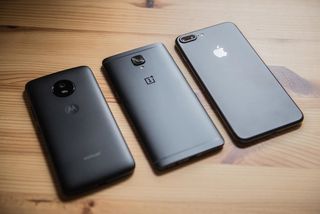
With just a handful of meaningful choices remaining at this point, the smartphone buying process becomes a matter of personal taste. It's time to finally zero in on the exact product they're going to buy.
Often times, their pick will be motivated by the way the phone looks, which just goes to show you why so many manufacturers follow design trends. You're not getting a Samsung Galaxy S10 for $400, but you can certainly find yourself something that looks the highly expensive part.
This is also the time to get into the specifics and point out key hardware and software differences that may or may not impact the decision. I tend to lose them at this point as I get into a lot of technical terms that, quite frankly, I don't always have the time to fully explain.

I also get a bit long-winded in explaining it and that drives them crazy, but if I didn't do it, I can't instill confidence in them that they're making the right decision.
But that's why you're the expert, and that's why they're coming to you: they almost want you to make the pick for them. Instead of drowning their brain with information they likely don't care to retain or that they simply don't understand, I'll usually opt or be asked to take charge and present the best option for them.
And those last two words are key to the whole thing: for them. Not everyone needs or wants the same things, and that's why there are so many different choices available to us in this world. No matter who you're helping, it's important to get to know them a little bit, because only then can you be confident in your ability to help them buy something they won't regret.
Spend time to find something you know you'll love instead of wasting money on stuff you don't.
By the end of our window shopping, we had determined that anything under $300 would work, and when people give me an upper limit, I like to hit that limit as hard as I can.
I found that the Honor 8X I recently reviewed was probably the best bang for the buck from a hardware perspective, but because there's no version of it appropriate for use in America, that wasn't going to work. The next best pick was the Moto G7, but it just doesn't have the slick look he's going for. That's when I presented the Nokia 7.1, which also happens to be what Android Central considers to be the best phone to buy under $400. It's $50 more than his budget called for, but it has pretty much everything he needs and he instantly fell in love with the way it looks.
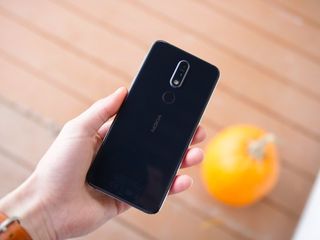
At the end of the day, the only thing that kept him from getting the smartphone that was truly right for him was $50. Because we're best friends, I was comfortably blunt in telling him to lay off buying Apex packs and dining out for just one week. It worked, he waited, he bought it, and he loves it.
Honor 8X vs Nokia 7.1: Which should you buy?
Use this advice to help yourself, too
The reason I have had such success giving this advice is because I needed and wanted to learn these things for myself at one point years ago. Figuring out what is and isn't useful to me in a given product is probably 90% of the research process I use when buying anything new for myself. I spend days — weeks, sometimes — meandering, debating, contemplating, and comparing, but it's worth it because I am not often disappointed with whatever I choose to go for.
I don't always buy the best thing, but I almost always buy the best thing for me. Whether it's your friend, family member, or yourself looking to upgrade to any of the exciting smartphones coming out in 2019, take this advice and use it to make the best decision possible.
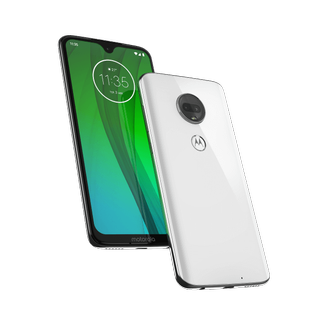
The best of the budget.
Motorola's latest phone is the one to buy if you have a budget of $300 or less. It's got a big, beautiful 6.2-inch display, a great camera, decent battery life, and incredibly intuitive, fluid software.
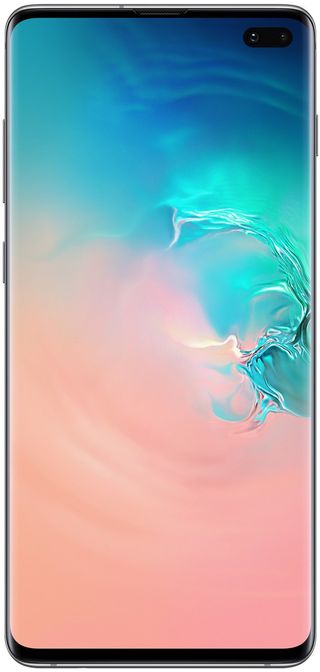
A fantastic phone for anyone's needs.
Samsung has once again topped the competition with the Galaxy S10. It offers features that anyone can lust after, wrapped up in a beautiful hardware package with the best screen you can get on a smartphone today. The new triple camera is fun and consistent, and battery life is exceptional.

